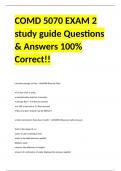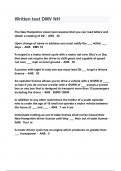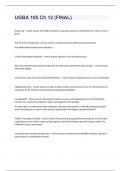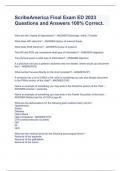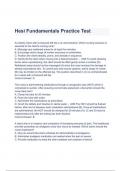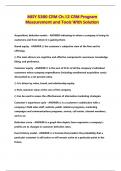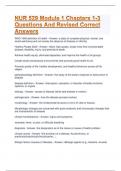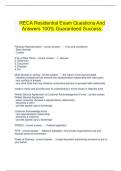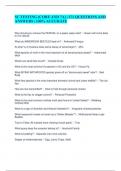Exam (elaborations)
COMD 5070 EXAM 2 study guide Questions & Answers 100% Correct!!
- Course
- Institution
calculate average air flow - ANSWER-flow=air/time • if 1 liter of air is used... • and phonation lasts for 5 seconds... • average flow = 1/5 liter per second • or 200 cc/second or 0.2 liters/second • flow at a given instant may be different u-tube manometer: how does it work? -...
[Show more]
